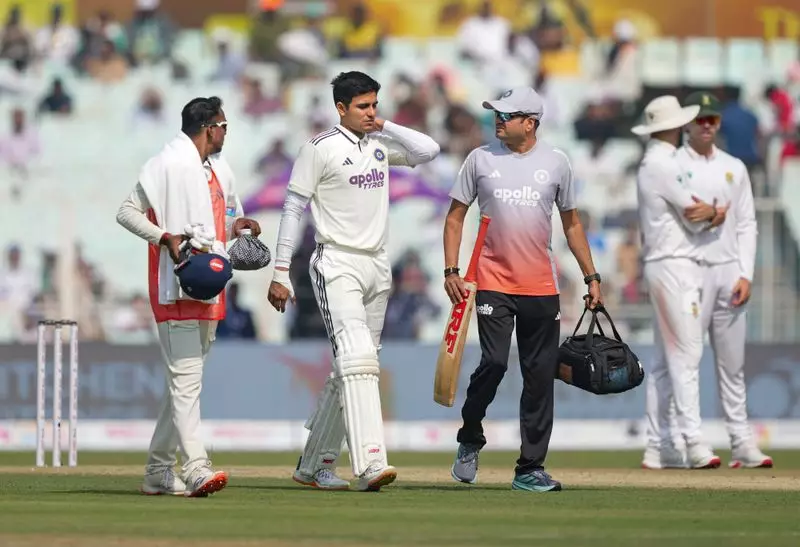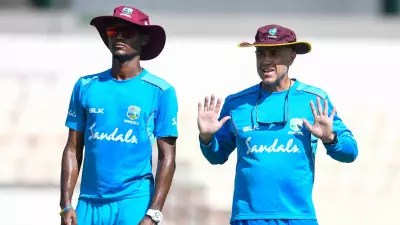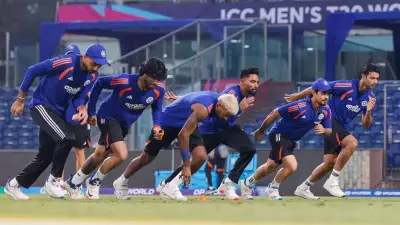
Indian cricket team faced a significant setback during the second day of the first Test match against South Africa when promising batsman Shubman Gill was forced to retire hurt due to a neck injury. The incident occurred at SuperSport Park in Centurion, casting a shadow over India's batting performance.
Match Interrupted by Gill's Sudden Injury
The unfortunate incident took place on Wednesday, December 27, 2023, when Gill was batting at 2 runs off 12 deliveries. The young batsman suddenly experienced discomfort in his neck area while facing South Africa's bowling attack. Team medical staff immediately rushed to the field to assess his condition as play came to a temporary halt.
After preliminary examination, the medical team diagnosed Gill with a neck sprain that required immediate attention. The injury appeared serious enough that the batsman couldn't continue his innings, leading to his retirement from the match. This development came as a blow to the Indian team's strategy, particularly since Gill had been showing promising form in recent matches.
Team India's Batting Struggles Continue
Gill's injury added to India's existing batting woes on a challenging pitch. Before his departure, the team had already lost key wickets, including that of captain Rohit Sharma. The Indian batting lineup found itself under consistent pressure from the South African pace attack throughout the session.
At the time of Gill's retirement, India's score stood at 107 for 2 wickets, with the team looking to build a substantial total against the host nation. The injury forced an unexpected change in the batting order and team strategy, requiring other batsmen to step up and compensate for the loss.
Medical Assessment and Recovery Timeline
The Board of Control for Cricket in India (BCCI) medical team conducted a thorough evaluation of Gill's condition following the incident. While the initial diagnosis confirmed a neck sprain, the exact severity and recovery timeline remain under assessment. Team officials have indicated that they will monitor the player's condition closely over the next 24-48 hours.
Neck injuries in cricket, though less common than other sports injuries, can significantly impact a player's performance and require careful management. The medical staff will likely employ a combination of rest, physiotherapy, and targeted exercises to facilitate Gill's recovery. His availability for the remainder of the Test match and subsequent games in the series will depend on how quickly he responds to treatment.
This injury comes at a crucial time for Gill, who has been establishing himself as a key player in the Indian Test lineup. His recent performances had earned him praise from cricket experts and fans alike, making his potential absence from the game a significant concern for the team management.
Impact on Team Strategy and Series Outlook
Gill's unexpected exit from the match forced the Indian team to rethink their batting approach. The team management now faces the challenge of reshuffling their lineup and ensuring adequate batting depth remains. This incident highlights the unpredictable nature of Test cricket and how quickly match situations can change due to unforeseen circumstances.
The two-match Test series between India and South Africa represents an important contest in the World Test Championship cycle. Both teams are keen to secure valuable points, making every session and every player's contribution crucial. Gill's injury not only affects the current match but could also influence team selection and strategy for the second Test if his recovery takes longer than anticipated.
As the match progresses, all eyes will be on the Indian team's ability to adapt to this challenging situation and on Gill's recovery process. Cricket fans worldwide will be hoping for positive news about the young batsman's condition and a swift return to the field.






